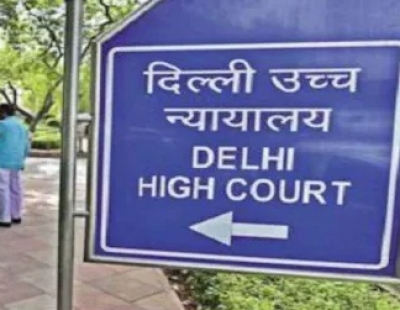New Delhi, May 13 (IANS) The Delhi High Court has directed the Delhi State Legal Services Authority (DSLSA) to create a programme aimed at educating teenagers on the legal implications of posting intimate content on social media or the Internet without the consent of their partner.
The directive follows a surge in cases where victims claim to have been sexually abused or blackmailed due to the sharing of inappropriate videos or photographs by their partners on social media.
Justice Swarana Kanta Sharma stated that inappropriate videos and photographs captured without consent or under coercion are often used to blackmail and continue the sexual abuse of the victim.
The judge also noted that there have been instances where young boys have been sexually assaulted and subsequently victimised through blackmail.
“In cases of sexual assault without consent or under some inducement, inappropriate videos and photographs are captured which are used for a long time for blackmailing the victims and continuing the sexual abuse. Even at times, this Court has witnessed cases where young boys have been sexually abused, assaulted and have been victims of such blackmailing,” the court said in its order.
The court passed the order while denying bail to one Sakib Ahmed.
The court cited allegations that the accused had befriended a minor girl three years ago and, in January-February 2021, called her to his residence where he allegedly had sexual intercourse with her.
It was also alleged that Ahmed recorded the incident and threatened to post it on social media if she spoke out about it.
The victim further alleged that the accused had again sexually assaulted her a year later and was pressurising her to convert and marry him.
The complaint was lodged after the accused threw eggs and stones at her house.
However, Ahmed’s lawyer argued that the relationship was consensual and he was falsely accused.
After considering the case, the judge stated that the record reveals that the applicant not only established physical relations with her on the pretext of getting married to her and had continued to do so, but he had also videographed the same.
“To sum up, had it been a case of consensual adolescent mutual love as argued by the learned counsel for the applicant (Sakib Ahmed), it would have no place of abusing, blackmailing, inducement, threat, violence, pressurising and threatening her to convert to his religion for the purpose of forcibly getting married to her even when she wanted to get out of the abusive relationship,” the judge said in its order.
“She was put under fear and threat of social shaming of herself and her family, which does not indicate that it was a consensual, innocent adolescent mutual love relationship,” the order further read.
“Rather, the gravity of the offence is aggravated by the fact that the accused was threatening to make public the intimate videos and images that he had captured without consent of the prosecutrix and was using it to blackmail her, and in return was asking for sexual favours,” the court noted.
“Thus, he (Ahmed) was using the sexualised photos and videos as a tool to threaten, socially shame, embarrass, defame and blackmail her to coerce her into sexual relationship,” the court further noted.

